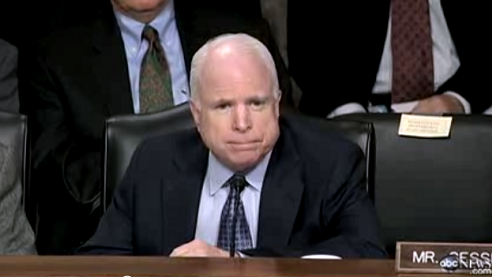From our friends at the Save Jersey blog:
By Matt Rooney (reprinted with permission)
I found out about Senator John McCain’s passing at a Saturday wedding, Save Jerseyans, so unlike most of the political/social media universe, I had a little healthy time to reflect on the legacy of this navy hero, iconic U.S. Senator from Arizona, and a two-time presidential hopeful who played the part of conscience (or foil) at some key points in the political debates of modern American history.
Perspective is a good thing. More people should spend twice as much time thinking as they do reacting in my humble opinion, but social media typically provides too much temptation. Trite responses and straight-up nastiness seem to dominate the conversation. Half of Facebook and Twitter immediately eulogized John McCain, “The Maverick,” as the Second Coming; the other half decried him as a modern Judas who barely earned the right to a Christian send-off.
The truth? He was a human being. Nothing more, nothing less. And McCain’s human-ness might be the reason why so many found him either lovable or loathable.
McCain’s public life began with a singularly heroic act of bravery:
In 1967, after he was shot down over North Vietnam, McCain (the son of an admiral) languished for the next 5+ years in the infamous Hanoi Hilton. He could’ve gone home early because of his rank and connections, sparing himself a lot of loneliness and pain; McCain refused, wanting to got home only in the order in which he was captured. It’s an experience which undeniably shaped the brash young pilot and changed him in ways that I’m not qualified to understand and neither are you unless you’ve had a similar experience.
There were plenty of other times since his release from prison that McCain displayed valor, or at least a willingness to take risks. His dignified acceptance of his fatal brain cancer diagnosis — something he was willing to discuss on national television — is an example for us all.
But the end of his life also revealed the other side of McCain. On July 28, 2017, shortly after learning of his cancer diagnosis, McCain gave a “thumbs-down” vote to the GOP’s final, great attempt to repeal the Affordable Care Act aka Obamacare, a move which he followed up with a speech calling for a return to “civility” in the Senate. He could have helped end America’s dangerous and expensive experiment with socialism in the health care arena — something against which he spent much of his life fighting — but he balked when it mattered most.
Unadulterated stubbornness? Overconcern at the end of his days with preserving his “maverick” brand? Or uncontrolled emotion given his own instant medical challenge?
I’d wager a bit of all three. McCain had principles and felt things deeply, but he also frequently allowed his temper and grudges to undermine his party’s laudable initiatives and, I’d argue, his own legacy. He was often far meaner and aggressive in beating up his fellow Republicans than the liberals, and the Media, who did him no favors in Election 2008 when their favorite disloyal Republican stood in the way of Barack Obama. You may say he “put country ahead of party,” especially if you’re insistent upon putting everything in the context of our present Trumpian reality; I’d argue that McCain was often unable to put higher pursuits ahead of McCain, consciously or not.
Again, we’re all part sinner and part saint.
Senator McCain was no different. He inspired us and he deeply disappointed us. He achieved great things and also missed out greatness, largely due to his own flaws. He was a famous man, but he certainly wasn’t a marble man.
Good luck finding a consensus as he’s laid to rest. McCain wasn’t a consensus builder. If one develops? It should be that politicians are people, and we might be doing them (and our republic) a disservice when we contort their post-mortem biographies to fit our ideological narratives or lionize/demonize them to serve that same worldview. Life, and people, are a lot more complicated than all that.

No comments:
Post a Comment